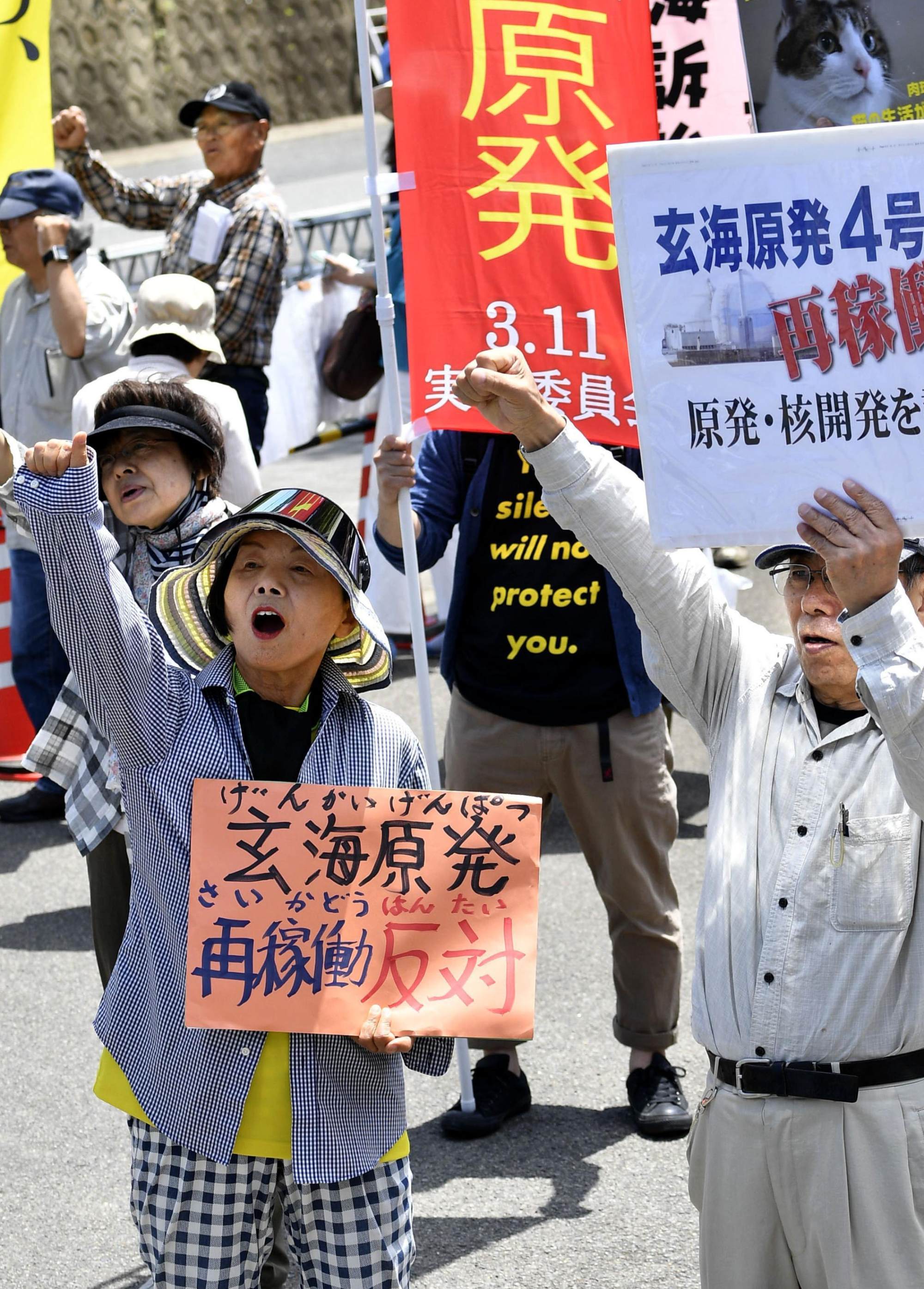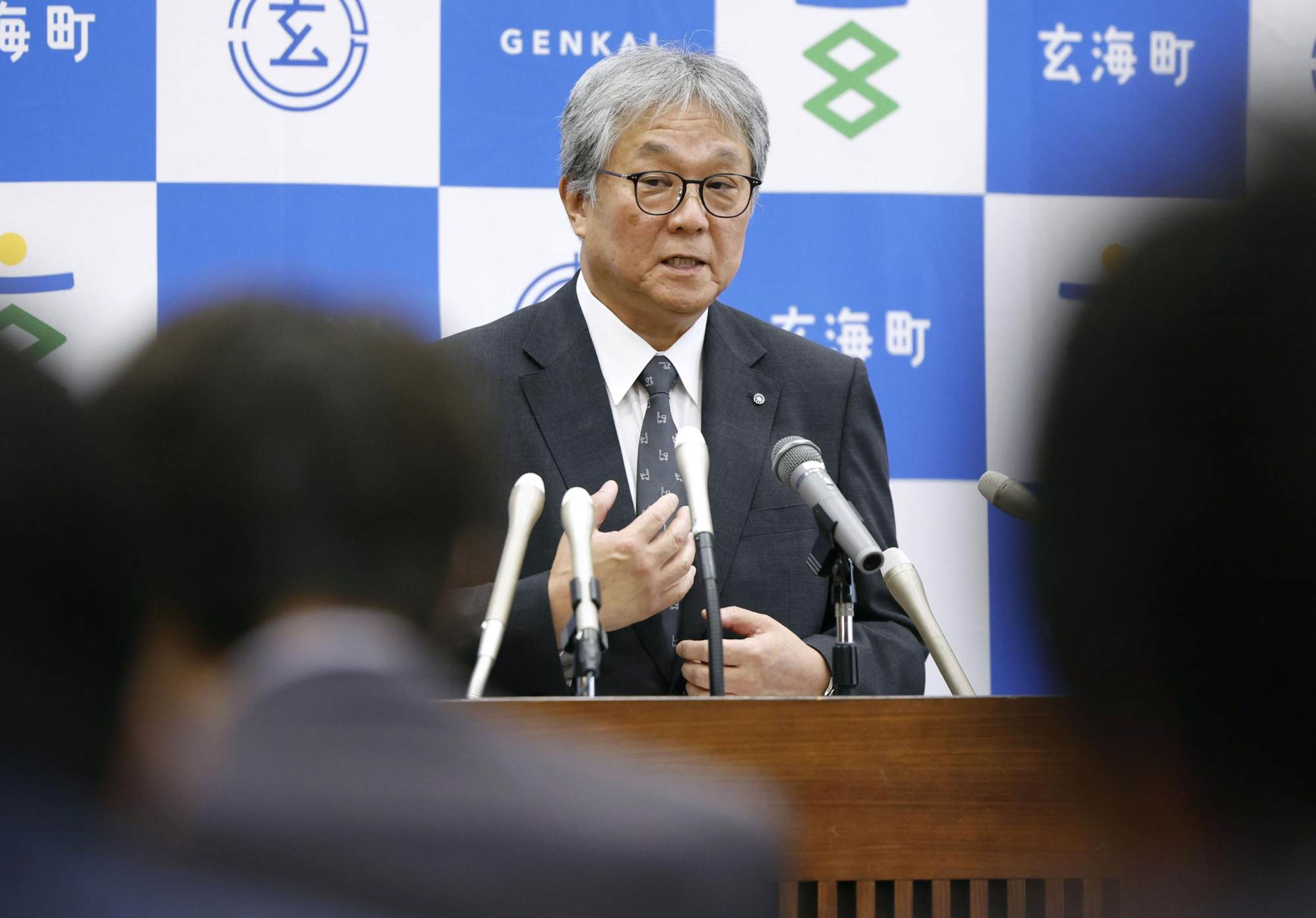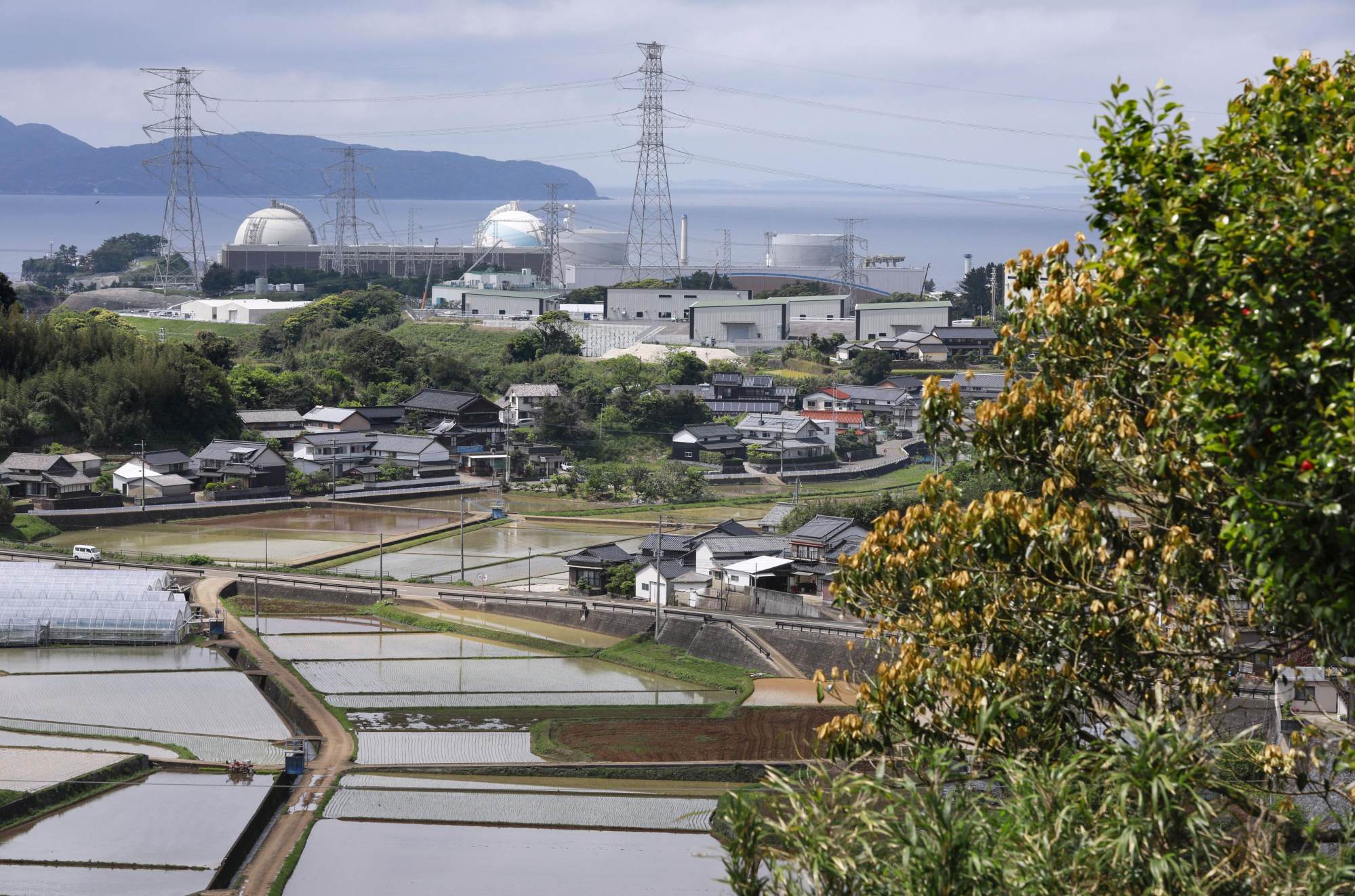“We will have to live with constant uncertainty, the threat of not knowing if or when we will have to flee, whether we will be informed of problems at the facility or whether we will ever be able to return to our homes.”
Genkai Mayor Shintaro Wakiyama on Friday approved a feasibility survey for the construction of an underground chamber storing hundreds of tonnes of nuclear waste that will emit high levels of radiation for thousands of years.

“I spoke with evacuees from Fukushima about the situation close to their homes, and they told me things the media never reported,” she said. “I quickly reached the conclusion that we need to stop using nuclear power as soon as possible.”
Makise, who previously worked alongside her husband in a restaurant in Tosu, a city south of Genkai, also opposes the town’s nuclear plant site that opened in 1975 and is operated by Kyushu Electric Power.
Home to around 4,900 people, Genkai relies on handouts from the power company as it grapples with a shrinking and ageing local population and the consequent loss of businesses and tax revenue.
“As long as the Genkai plant is in operation, it will bring in 6 billion yen (US$38.8 million) of the town’s annual 10 billion-yen budget,” Makise said.
With other towns across Japan refusing the government’s requests to store waste from the nation’s energy plants, even more money is on offer to Genkai, which will receive 2 billion yen in subsidies over two years for allowing an initial study, known as a literature survey.

Subsequent surveys examining the geology and seismic activity in the region and would also come with generous subsidies. If the town is selected as a suitable site for nuclear-waste disposal, it would be significantly richer than its neighbours.
But financial incentives do not appear to be enough to sway the public. A phone poll from April 28 to May 1 found 83 of 114 respondents opposed to a nuclear waste site in Genkai. Just three people were in favour, with the rest replying that they were “undecided”.
Some who were against the plan said the facility would turn the town into a “graveyard”, Makise said.
Tokyo-based Citizens’ Nuclear Information Centre, an anti-nuclear group, earlier condemned the government for pressuring the town into hosting the disposal site, pointing to an online petition calling for the mayor to reject the survey that had attracted 10,570 signatures in just four days.

The study’s negative impact will be felt in neighbouring communities that have already expressed their opposition to the plan, the anti-nuclear group said before Wakiyama announced his decision.
The group criticised the town council for “insufficient discussions and poor decision-making”, including failure to hear comments from analysts critical of geological disposal of nuclear waste.
It also accused the government of “extreme disrespect for safety” as previous geological surveys have identified deposits of coal, which often indicates the presence of methane gas.
Aileen Mioko Smith, an environmental campaigner with Kyoto-based Green Action Japan, said the government was breaking the promises it had made to local communities when nuclear energy was first proposed in Japan.
They were promised that the spent nuclear fuel would be offloaded out of their jurisdiction
“Way back when nuclear power was starting, local authorities that were considering [nuclear] plants were promised that [the plants] would be used only for generating electricity,” she said.
“They were promised that the spent nuclear fuel would be offloaded out of their jurisdiction.”
But many of these local communities were now “on their knees and heavily dependent on the nuclear economy”, so the government has returned to “flashing money” in front of local authorities, Smith said.
She described money from the nuclear sector as a “narcotic” for struggling communities. Towns with nuclear plants have become dependent on government handouts, while those without have established their tourism industries, light industry or other sources of income.
“The plan does not commit Genkai to go further than a literature survey, but of course once the first infusion of money comes, it won’t be long before they ‘need’ the next one,” she said.
Genkai’s town council last month approved the initial survey with a six-to-three vote.
This Week in Asia contacted the council and the town’s Disaster Prevention and Safety Section, which is in charge of nuclear issues, for comment but did not receive a response before publication.

